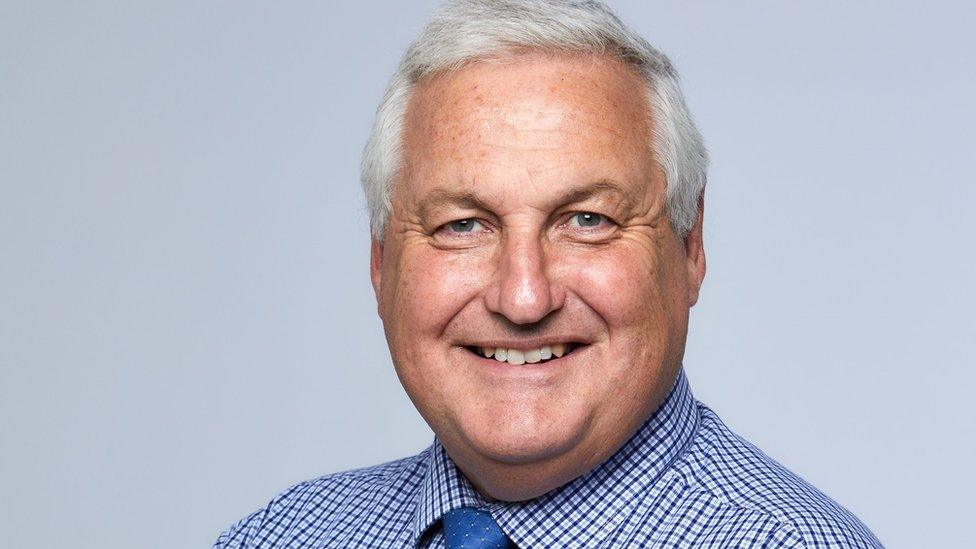Advice after rise in scams in Channel Islands
- Published

A specialist in financial crime and asset recovery said there were people currently "suffering badly" from fraud
Experts have said "speed is of the essence" when reporting fraud and cyber crime.
It comes after National Fraud Intelligence Bureau (NFIB) data revealed in the past year £7.3m had been lost in the Channel Islands.
There have also been 274 reports of people being scammed since February 2023.
A specialist in financial crime and asset recovery said there were people currently "suffering badly" from fraud.
HSBC bank recently warned its customers in the Channel Islands and Isle of Man following a spate of scams.
In a statement, HSBC said: "We see scams where customers are told their account has been compromised, or they need to move their money to a 'safe account'.
"This is not genuine and your bank will never ask you to do this."
'Don't wait'
Barry Faudemer runs Baker Regulatory Services, a law firm in Jersey which deals with people who have fallen victim to scams.
He said people "do get caught off guard" and if that happens, "they need to report it via the fraud reporting line number".
Mr Faudemer said: "The quicker you are in making a report the more chances you have of stopping that money from leaving your account.
"Speed is of the essence. Do it straight away, don't wait."
He said people could also make a complaint to their bank in writing as soon as possible.
"Don't rely on just a telephone complaint," he said. "You need to keep a copy of it, send it to the bank and they will give you a complaint number and tell you they have 90 days to investigate the complaint."

Barry Faudemer is part of a legal team which deals with financial crime and asset recovery
The expert also advised contacting police and if money is sent to the UK, to complain to Action Fraud.
"The impact [of fraud] has been huge. We've seen people who've lost their life savings and they're absolutely devastated. There's people suffering really badly from this surge in fraud."
The chief executive of the Channel Islands Financial Ombudsman, Douglas Melville, also issued advice.
"If you move really quickly at the point where you realise something's gone wrong sometimes it's possible for your bank to do a recall of the funds to the receiving bank because presumably your funds have been sent to another account at another bank," he said.
"The faster you move, the faster you initiate that recall, the more likely you are to get some or all of that money back."

Follow BBC Guernsey on X (formerly Twitter), external and Facebook, external. Follow BBC Jersey on X (formerly Twitter), external and Facebook, external. Send your story ideas to channel.islands@bbc.co.uk, external.
Related topics
- Published19 March 2024
- Published15 March 2024

- Published4 January 2024
